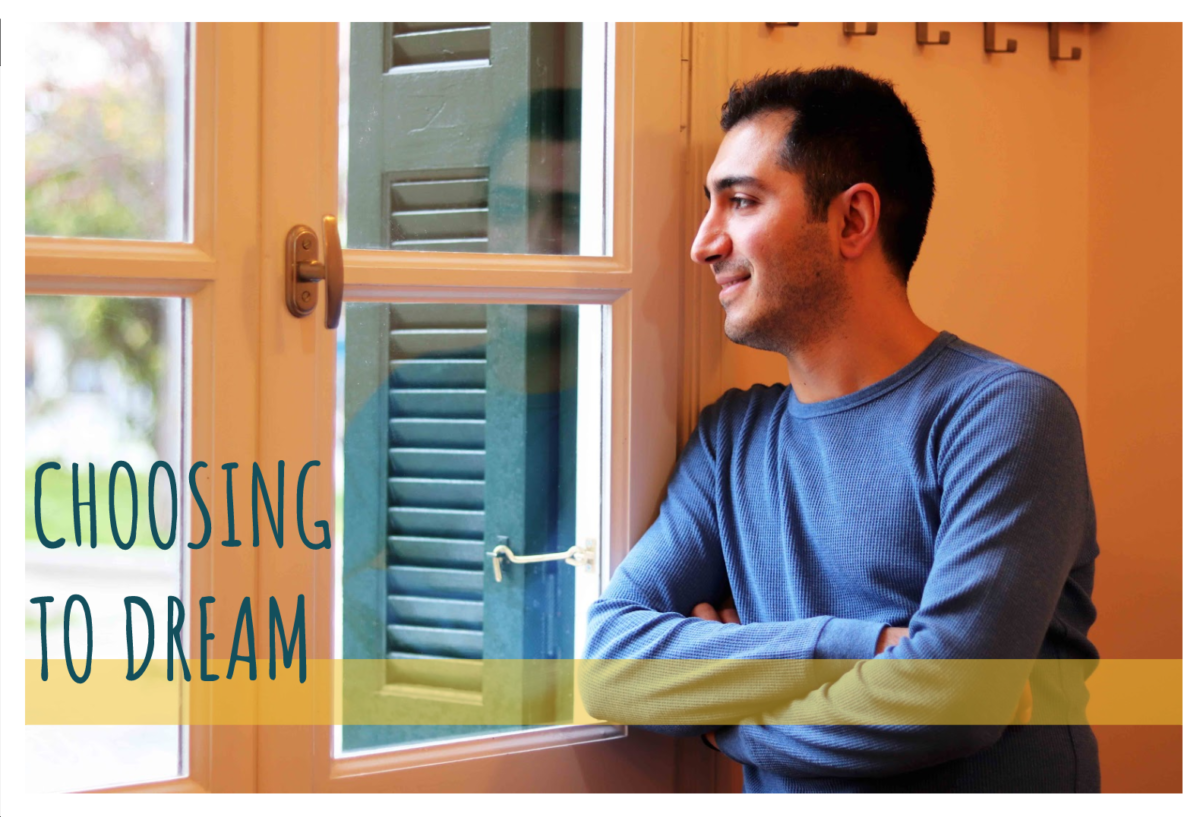Choosing to Dream | “To learn and to evolve: there is the key to success!”
The Choosing to Dream column this time hosts Saeid, a 31-year-old man from Iran. He has been living in Greece for something like more than a year now, and he already speaks so good Greek that makes you wonder: How does one learn such a difficult language so quickly? Very polite and willing, Saeid gave us a meaningful interview that answers the previous question. When someone sets goals and does not rest on his laurels, everything is possible! But, let’s hear it from him…

“I am currently working at a Social Clinic for women and children refugees in the center of Athens. I book appointments for the clinic’s dentists, and I also do intercultural mediation for doctors and patients in the clinic. I found this job through a friend, who worked there and suggested I’d work with them.
In Iran I went to school for twelve years and then studied for two more in a technical school for Mechanical Engineers. Before I came to Greece, I worked as a quarryman, in marble mining particularly. It was a family business and I worked there for fifteen years.
Before finding my current position, I was job searching for about a month. I did not face many difficulties when looking for a job, because I speak the language and stay alert. I always want to learn and evolve, and that is where I think the key to success is.
What I think played a big role for me to get a job was my professional experience and the job stability, my personal skills and the Greek language. Also, a good CV created by someone who has the knowledge helps to make sure the potential employer understands what experience you have, even if you do not speak good Greek or English.
I do not think I’ve lost any job opportunities in Greece due to my gender, age, religion, nationality or other reasons. We must try to become better and be alert, no matter what others think about us. Kind and mean people will always exist.
I believe that Greece is not a discriminating country. You have to be a consistent and good employee, for sure, keeping up with the legal frameworks when possible, making a tax statement every year for example. I believe that the first and most important thing in finding a job in Greece is the Greek language, of course.
Generation 2.0 RED has helped me through the counselling service by encouraging me psychologically that I can do it, by helping me to write a very good CV in two languages, to create a new e-mail and then to search for a job by showing me job searching techniques. I think that only by visiting the career counsellor I already got a little prepared for the job interview, as it was a meeting in a more professional context for me.
What advice would I give to other people, migrants and refugees, who are now looking for a job in Greece? Just to follow five steps:
- To learn the Greek language and culture (how do people function in the country they now live in)
- To have hope for the future
- To try continuing their lives and go further here
- To plan their steps and set priorities
For me, the first and most important step was to leave the camp where I only received negative energy, listening to problems daily. I wanted to leave this dead-end situation. Then I decided I would learn Greek and I was dedicated to it. I was studying and I stayed focused on my lessons.
I then met people working at an NGO through friends and I became a volunteer, an experience that gave me many important skills and knowledge about the Greek culture and life.
The last step?
- Career counselling! There, a specialist will show you the way to write a CV, where and how to look for a job in Greece, alternative vocational and educational paths, and finally preparation for a job interview.”
TIP:
A fairly common way of finding a job is through our close and wider family and social network, such as relatives, friends, well-known colleagues, etc. In general, the acquaintances we make in our everyday lives can prove to be a link to a new opening in our professional future. So, grab the opportunities to meet people through your activities! Language courses, volunteering, participating in sports, artistic, educational groups are areas where this interaction can take place. All this, along with motivation, mobilization and positive thinking, makes everything possible!

 Ελληνικά
Ελληνικά

